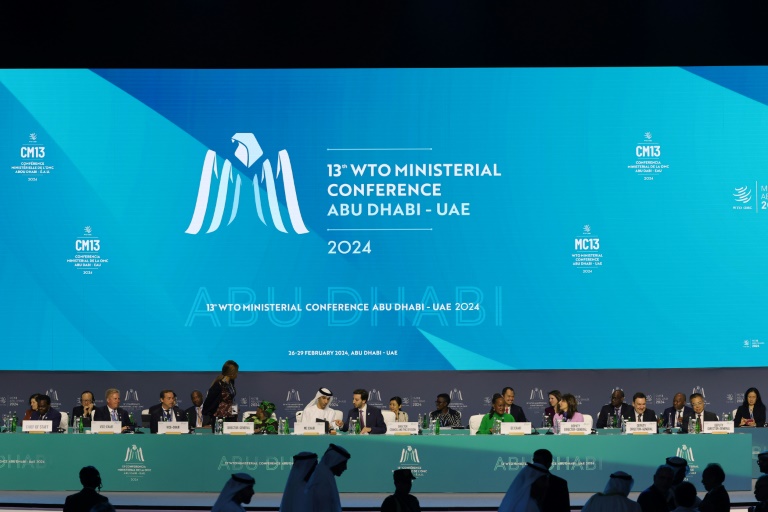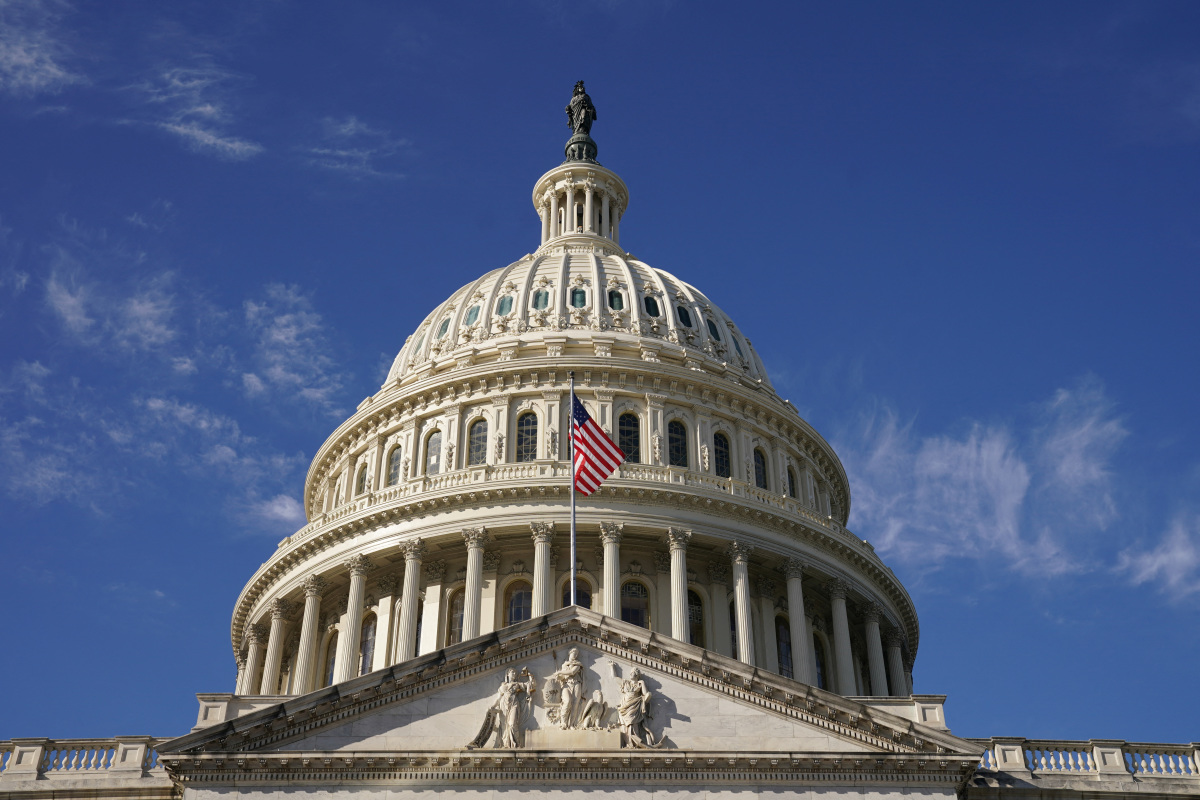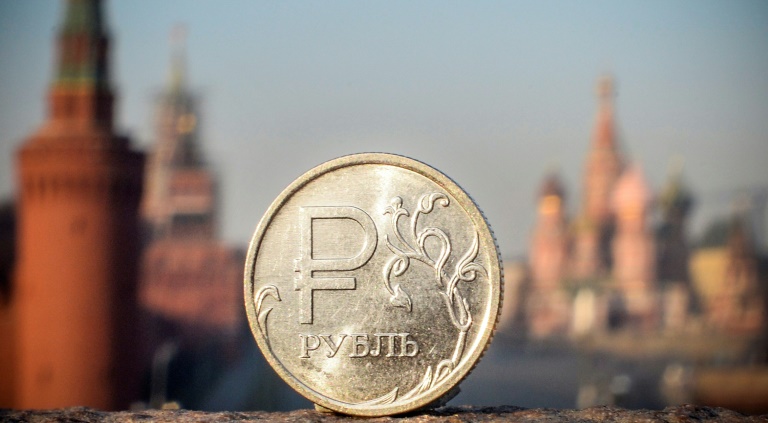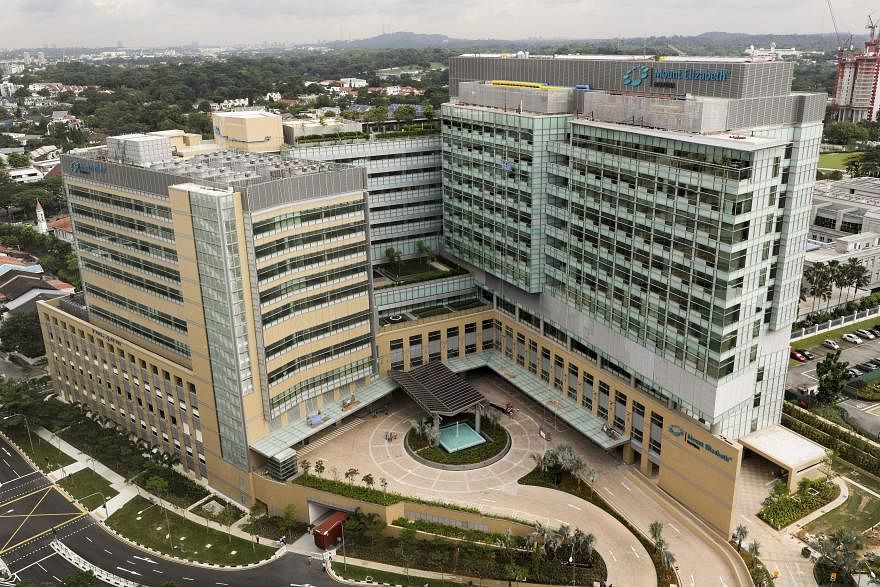World trade ministers were locked in disagreement on fisheries subsidies, agriculture and digital customs duties as a major WTO conference entered its last scheduled day on Thursday.
With no signs of a breakthrough at the World Trade Organization’s 13th ministerial conference (MC13) in Abu Dhabi, officials pushed back to midnight its formal closing session, initially scheduled for 8:00 pm (1600 GMT).
The meeting in the capital of the United Arab Emirates opened on Monday with disagreements between the body’s 164 member states on key issues that dominated the agenda of the talks.
They include fisheries subsidies, agriculture and a moratorium on customs duties for digital transactions.
“Everybody is working with a very positive outlook… to try to see what’s the maximum we can get done,” Indian trade minister Piyush Goyal told journalists.
“I am very confident… we will come out with significant outcomes, particularly when it refers to areas of very deep concern to large numbers” of developing countries, he added.
Delegates sought trade-offs as part of a potential package deal that could allow for greater agreement, as was the case during the 2022 ministerial meeting in Geneva.
A new deal on fisheries was initially viewed as the most likely outcome of the MC13 talks.
But Goyal on Thursday said: “It is very difficult to get a resolution.”
After a 2022 deal which banned subsidies contributing to illegal, undeclared and unregulated fishing, the WTO hopes to conclude a second package focusing on subsidies which result in overcapacity and overfishing.
A draft text that was meant to be circulated on Wednesday is still facing delays, said a source close to the negotiations who spoke on the condition of anonymity.
The overall negotiations “are a bit like a rollercoaster,” the source said.
Another sticking point is over the extension of an e-commerce moratorium, which EU trade commissioner Valdis Dombrovskis on Thursday called “vital” to economic growth.
Since 1998, WTO members have agreed not to impose customs duties on electronic transactions.
The moratorium has been extended at most ministerial meetings since then, but objections by India and South Africa are now throwing it into jeopardy.
When asked if India would compromise on an extension, Goyal said: “Let’s see what the others are budging on.”
He warned, however, that an extension can’t be “taken for granted.”
On food security, Goyal said he was “confident” progress could be made on permanent rules governing public stockholding of food reserves — a key demand of India.
A “solution can be achieved,” Goyal said.
Big questions remain over how the outcome will address the issue of dispute settlement reform — a main point of contention between the United States and India.
Washington, under former President Donald Trump, brought the dispute settlement system to a grinding halt in 2019 by blocking the appointment of new judges to the WTO’s appeals court, its highest dispute settlement authority.
During the last WTO ministerial in 2022, member states reached a commitment to having a fully and well-functioning dispute settlement system in place by 2024.
“What we’re going to see, I think, is a quite succinct (MC13) declaration which is… not going to sort out the substance,” said a Western diplomatic source who asked not to be named.
“It will recognize the progress we have made and that there is more work to be done, and that we have committed ourselves to get… the system up and running in the course of this year.”







